In response to consumer, regulator and investor demands, Macau’s integrated resorts are adopting more environmentally friendly practices that also improve the customer experience.
Casinos going green means much more than taking bets in US dollars. Integrated resorts, long regarded as bastions of extravagance, even profligacy, increasingly focus on environmental sustainability, commonly defined as meeting current needs without sacrificing the ability to meet similar needs in the future. Macau IR operators are perched at the leading edge of the sustainability drive.
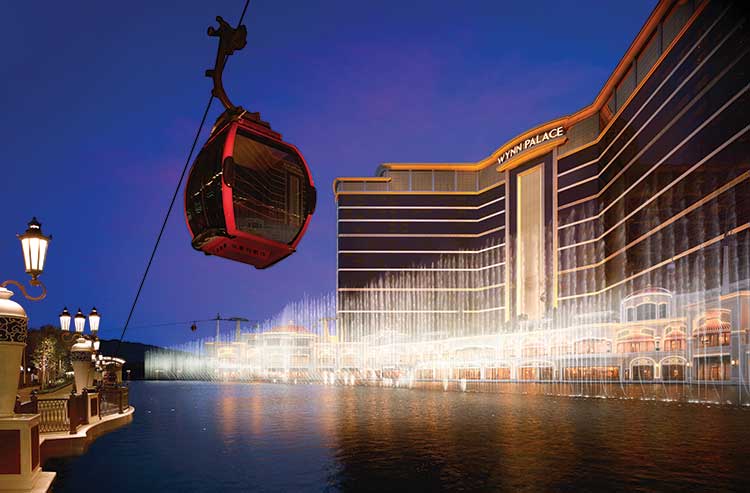 “Luxury and sustainability can go together, they don’t have to be mutually exclusive,” Wynn Macau Vice President for Sustainability Rishi Tirupari says. “My goal is to give guests a sustainable option, not to take something away. Find a way to enhance their stay and make it sustainable: that’s a win-win. That’s the kind of solutions I’m looking for.”
“Luxury and sustainability can go together, they don’t have to be mutually exclusive,” Wynn Macau Vice President for Sustainability Rishi Tirupari says. “My goal is to give guests a sustainable option, not to take something away. Find a way to enhance their stay and make it sustainable: that’s a win-win. That’s the kind of solutions I’m looking for.”
Customer demand reinforces Macau sustainability efforts.
“From what I see, there’s a shift in guest perceptions,” Tirupari says. “They expect sustainability. They expect quality, healthy food, but now ask where is that food coming from, is it organic? These things weren’t in evidence before.”
Growing environmental awareness in mainland China, the source of two-thirds of Macau’s visitors, supports the shift. Shanghai has announced a ban on single use plastics in catering, and last February Hainan became China’s first province to completely prohibit single use plastics, starting in 2020 with non-biodegradable bags and eating utensils and extending to all items by 2025.
There’s also greater interest from financial gatekeepers. The Hong Kong Stock Exchange requires listed companies to report on sustainability efforts. In the US, there’s no legal obligation, but investor demand has led to most large US companies taking sustainability seriously.
PROGRESS REPORTS
Macau’s six gaming concessionaires report on sustainability, either as an annual report section or as a separate document. Sustainability executives from Macau concessionaires meet regularly to share ideas and project outcomes.
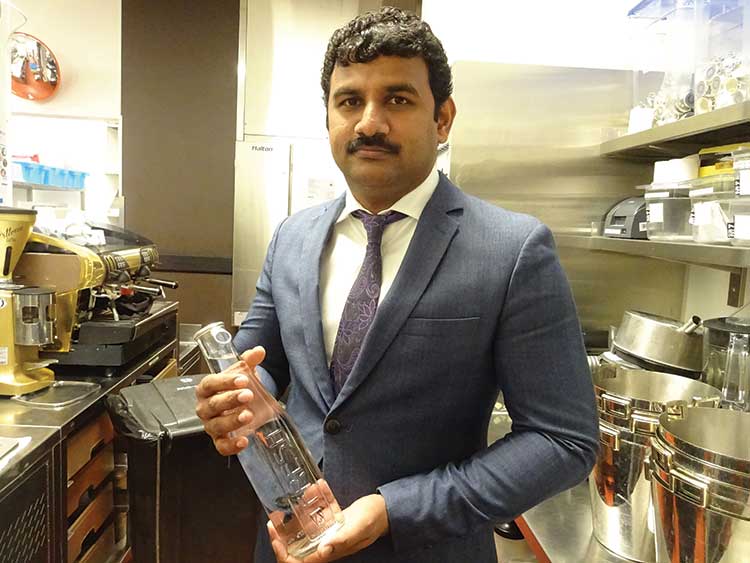
“All six operators are doing a lot,” Tirupari says. “All have a different focus.”
Tirupari, age 34, illustrates the broad and spreading gaming industry concern with sustainability. After graduating with a degree in civil engineering from his hometown University of Hyderabad in India and a master’s in construction management from University of Washington in Seattle, he joined Las Vegas Sands with a brief to reduce carbon emissions, waste and water use at its Las Vegas properties.
He transferred to Macau during the construction of The Parisian Macao to help create the most sustainable resort in the LVS portfolio. The IR, opened in 2015, won certification from the US Green Building Council and a Macau Green Hotel Gold Award.
After reprising his Las Vegas role in Sands China operations across Macau, Tirupari joined Wynn Macau in 2018 to head its sustainability efforts. His work earned 2019 citations as an Industry Rising Star at the G2E Asia Awards and one of the Emerging Leaders of Gaming 40 Under 40.
LONG FOOD CHAIN
At Wynn Palace, Tirupari has spearheaded key innovations in plastic bottle reduction and food waste mitigation.
“Food has a big chain of waste: energy to import it, energy to cook it, then throwing it away,” Tirupari says. Wynn’s two Macau IRs generate more than a ton of food waste daily.
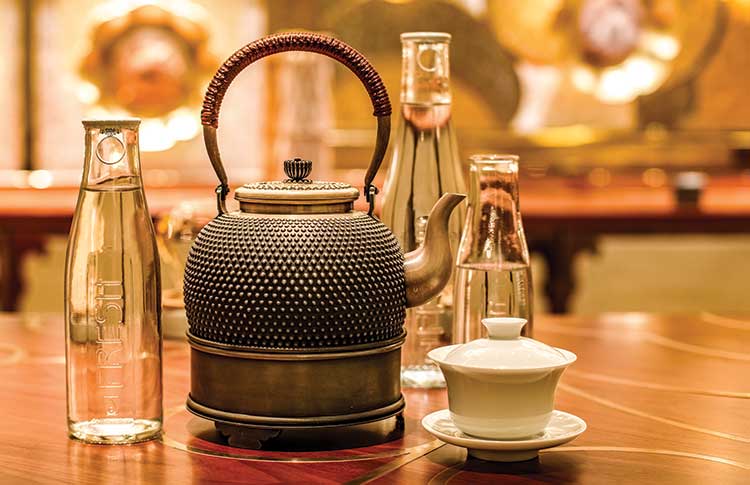 Compactors can reduce a ton of food waste to 200 kilograms of compost, but Macau doesn’t have an agriculture sector sufficient to utilize all the compost the IRs can produce. It also doesn’t have pig farms, a top notch disposal option. Long term, Tirupari hopes the Greater Bay Area Initiative will enable Macau to overcome space constraints by utilizing land in nearby jurisdictions for sustainability efforts, not just for waste disposal but including recycling facilities and solar or wind farms. In Las Vegas, off-site renewable energy facilities provide substantial proportions of power needs for many IRs.
Compactors can reduce a ton of food waste to 200 kilograms of compost, but Macau doesn’t have an agriculture sector sufficient to utilize all the compost the IRs can produce. It also doesn’t have pig farms, a top notch disposal option. Long term, Tirupari hopes the Greater Bay Area Initiative will enable Macau to overcome space constraints by utilizing land in nearby jurisdictions for sustainability efforts, not just for waste disposal but including recycling facilities and solar or wind farms. In Las Vegas, off-site renewable energy facilities provide substantial proportions of power needs for many IRs.
For now, though, Macau’s best solution is to stop food waste in the first place. To promote waste prevention, Wynn Palace has installed a waste monitoring system that identifies food being disposed and enables analysis. The system, trialed at three of Wynn Palace’s 14 food sites early in 2019, was installed throughout the property midyear.
Each networked unit include a trash container that sits on a scale, plus a computer, camera and screen. The camera reads the waste going into the trash and displays the food type on the screen; kitchen staff depositing waste can correct identification errors, enabling the system to improve its accuracy. Staff report the system is simple to use and effective. The computer records the type, time and weight of food disposed.
“You know what is going to waste, when, where and how much,” Tirupari says. Managers can analyze that data for better menu planning and to detect waste patterns. One early finding was about food being disposed from the Fortuna Buffet at the changeover from breakfast to lunch at 11am and from lunch to dinner at 3pm.
“At 10:59, the food was fine, so at 11 you send it to Meet & Eat,” he explains, pointing to Wynn Palace’s employee cafeteria.
MILLION A MONTH
Plastic water bottles represent another major sustainability challenge. Wynn alone reportedly uses one million bottles a month. Most single use water bottle consumption originates on the casino floor, but rooms, functions and restaurants also generate significant numbers.
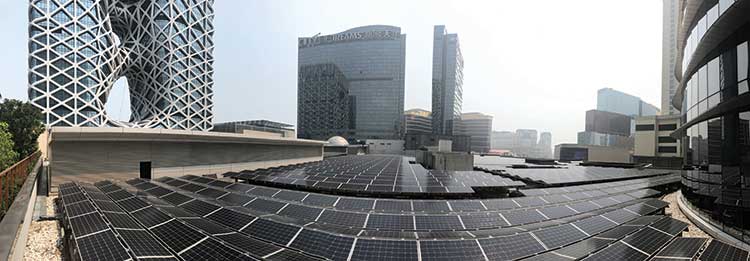
Last June, Wynn Palace began a trial of the Nordaq water system in its SW Steakhouse. Founded in Sweden, Nordaq supplies equipment for converting tap water into a product comparable to bottled water. Wynn is the first Macau gaming concessionaire to utilize the system, though Nordaq says it has other local hotel clients.
The manual system trialed at the restaurant includes a filtration unit that removes impurities from tap water with a carbonation option to produce sparkling water, and a capping system – black striped caps for still and blue striped for sparkling. The water fills one liter glass bottles that SW Steakhouse sells for MOP$50 (US$6.25), a discount to the price of bottled water alternatives San Pellegrino and Acqua Panna in glass bottles and Fiji Water in plastic bottles.
“One customer in five months has said, ‘I prefer Pellegrino,’” SW Steakhouse General Manager William Dunbar reports. “Just one customer.”
Compared with imported choices, there’s “no carbon footprint, no plastic and the tops are recycled,” he adds.
Nordaq’s process leaves water slightly alkaline, like leading mineral water brands. Many experts believe alkaline water is healthier than neutral or slightly acidic water, though the science is still unsettled. Sparkling Nordaq remains bubbly for three days, so SW staff prepare a few dozen bottles of each Nordaq variety daily, meaning the product is always fresh. Empty bottles are cleansed in the normal dishwashing process and refilled.
EASY BREAK EVEN
Wynn and Nordaq would not disclose specific financial information about the equipment used at Wynn. Nordaq says its basic system, including filtration, carbonation, bottling and capping components leases monthly for around HK$7,000 (US$894). Beyond utility costs for the water put in the bottle – plus water for bottle washing and 10 to 15 liters for system flushing two or three times annually – and electricity, there’s little additional cost for the Nordaq product. So SW Steakhouse’s break-even point is around five Nordaq bottle sales daily.
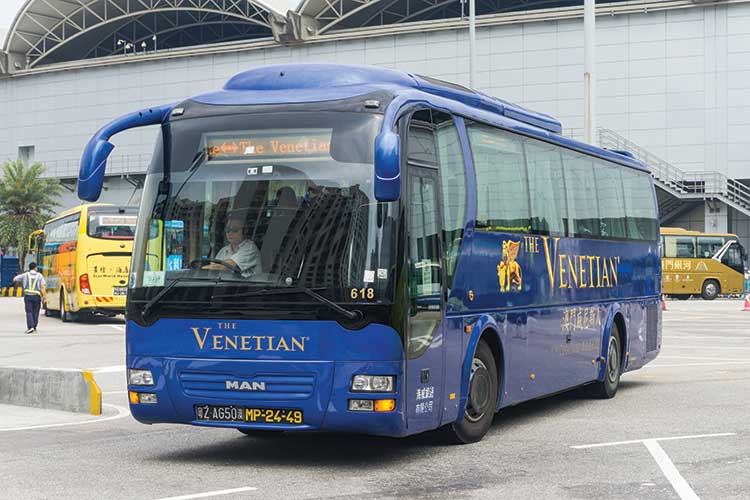
“My goal is to charge per person, so if you need water, we bring it,” Dunbar, who previously worked in Las Vegas, including its branch of New York’s legendary Old Homestead steakhouse, says. “That way, we don’t disturb you in the middle of a conversation to ask if you want another bottle of water.”
Nordaq’s success at SW Steakhouse set the stage for a groundbreaking initiative. An automated system will bottle water for the 1,700 rooms at Wynn Palace. The system, the largest ever designed by Nordaq, has an output capacity of 2,000 bottles an hour and is expected to go into production soon, replacing hundreds of thousands of plastic bottles now used in guest rooms. Dubbed Nordaq 2000, the Wynn installation builds on Nordaq’s flagship system at the Sheraton Stockholm with a capacity of 500 bottles per hour. The Stockholm plant began production in 2011 and last June produced its one millionth bottle, saving 540 tons of carbon, according to Nordaq.
“All the operators want to reduce plastic,” Tirupari says. “We are the only property where we can offer you a solution.”
He hopes that the Wynn plant can lead the way to wider progress toward eliminating single use plastic water bottles.
For Tirupari, Nordaq exemplifies the kind of sustainable solutions he’s seeking.
“It gives guests what they want as an even better experience,” a product that’s fresher and costs less. “What’s more sustainable than sustainable water?”
Greening Macau
All six Macau gaming concessionaires have active sustainability initiatives to help lessen their environmental impact. All report on sustainability to shareholders and the public, usually in tandem with their corporate social responsibility efforts.
“We believe that Melco as a business has a responsibility to contribute solutions that help solve critical environmental and social challenges around us,” Melco Resorts & Entertainment Chief Sustainability Officer Denise Chen says.
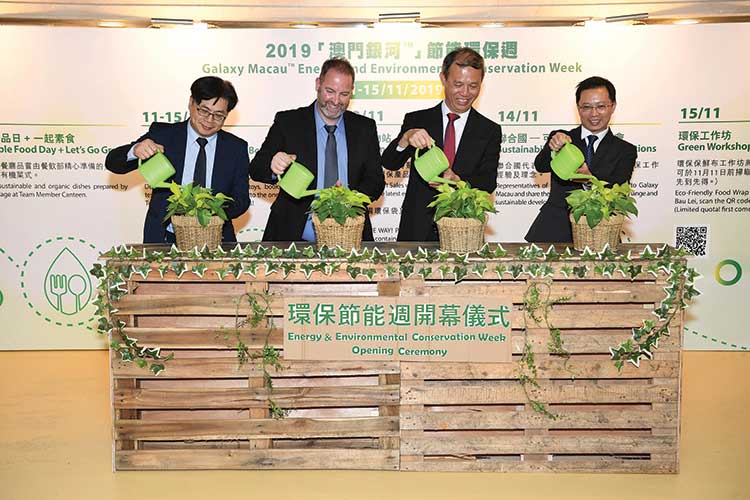
Melco joined the United Nations Environmental Program’s New Plastics Economy Global Commitment last March and in October published its first annual progress report. The report highlights Melco’s efforts to eliminate single use plastic (SUP) bottles in employee areas by the end of 2019, saving an estimated 244,000 bottles that generate 3.5 tons of plastic waste annually. Melco also made progress on its road map to reduce SUP throughout its properties, completing a waste audit of its IR operations. The audit found the majority of plastic usage comes from SUP bottles, so Melco is seeking “alternative solutions” to both SUP bottles and other F&B uses.
Melco launched Macau’s largest fleet of electric buses in 2018. A year ago in January 2019, working with Macau SME Man to Energy, Melco developed the city’s largest solar energy array. The more than 18,000 photovoltaic panels cover nearly 30,000 square meters (323,000 square feet) on the rooftops of City of Dreams and Studio City, reducing carbon emissions by some 6,000 tons.
“The vast scale of the system has never before been seen in Macau, and through the ongoing partnership with Melco, our company has gained valuable knowledge and on-the-field experience to establish its foundation as a forerunner in the area of sustainable energy,” Man to Energy Business Development Director Sam Liu says.
Sands China boasts a Green Hotel awards for its Venetian, Parisian and Four Seasons properties. The company uses energy efficient LED lighting for 98% of its illumination needs. The Parisian Macao pioneered use of compressed natural gas (CNG) buses in the market.
Sands China has undertaken several initiatives to produce hot water more sustainably, including a hybrid energy pilot project and solar heating, along with solar electricity production. It is harvesting rain and other options for non-potable water needs. Similarly, Melco recycles so-called gray water from sinks and baths for flushing.
Galaxy Macau’s landscaping includes more than 1,000 trees, the city’s largest tree planting program to neutralize carbon emissions. All six hotels at the Galaxy Entertainment Group (GEG) flagship property have been recognized with Macau Green Hotel Awards. GEG energy saving measures include advanced temperature monitoring and lighting to reduce electricity consumption by 10 million kilowatt hours annually. Galaxy also has a comprehensive recycling program annually capturing more than 1,000 tons of discarded materials.
All Galaxy F&B outlets use biodegradable utensils and containers exclusively. MGM China has similarly moved to biodegradable takeaway containers and provides cutlery only upon request.
Wynn Macau utilizes the internationally recognized Earth Check environmental management system at both of its IRs. In addition to its drinking water and food waste reduction initiatives (see main article), Wynn has undertaken community education through an environmental road show and sponsorship of the Smart City and Sustainability Forum with the University of Macau.

Plastic straws have been replaced by reusable stainless steel straws where “appropriate and aesthetically pleasing,” Wynn writes in its sustainability report. It is in the process of phasing out remaining plastic straws, substituting them with bio-pot, made from a potato based compound that biodegrades within 24 months.
SJM Holdings has taken numerous steps to reduce paper usage. The company, opening the Grand Lisboa Palace in Cotai this year, encourages paperless communications and uses recycled paper to produce company stationery. SJM also employs heat pumps for water heating.
MGM China has moved to biodegradable containers for takeaway items and only provides cutlery upon request. Overall, it strives to minimize packaging.
Operators also seek sustainable sourcing for a variety of commodities including produce, seafood and even cotton for linens.




























